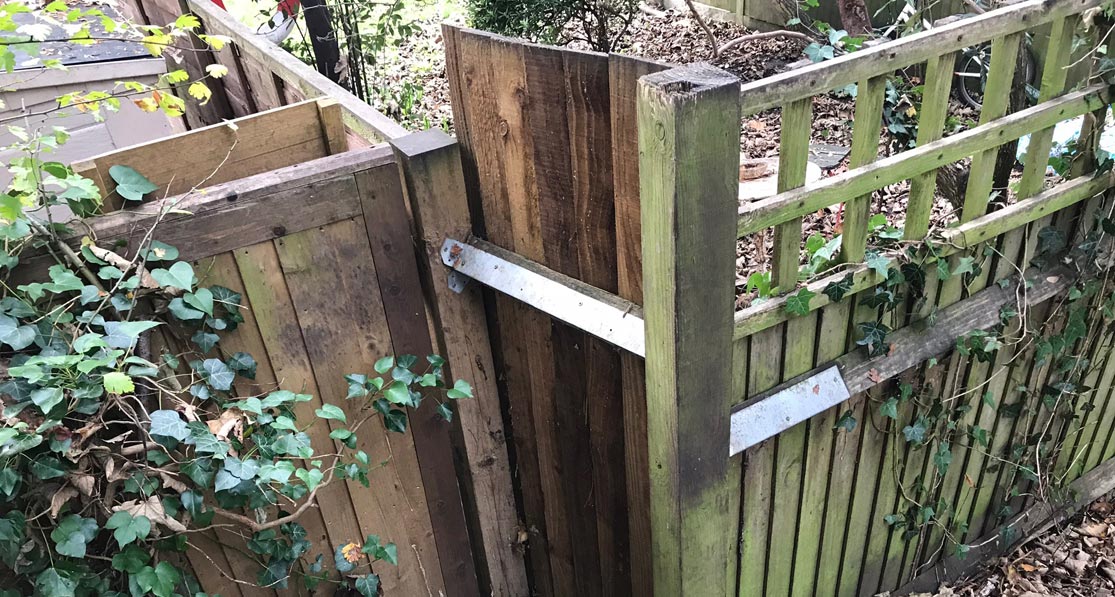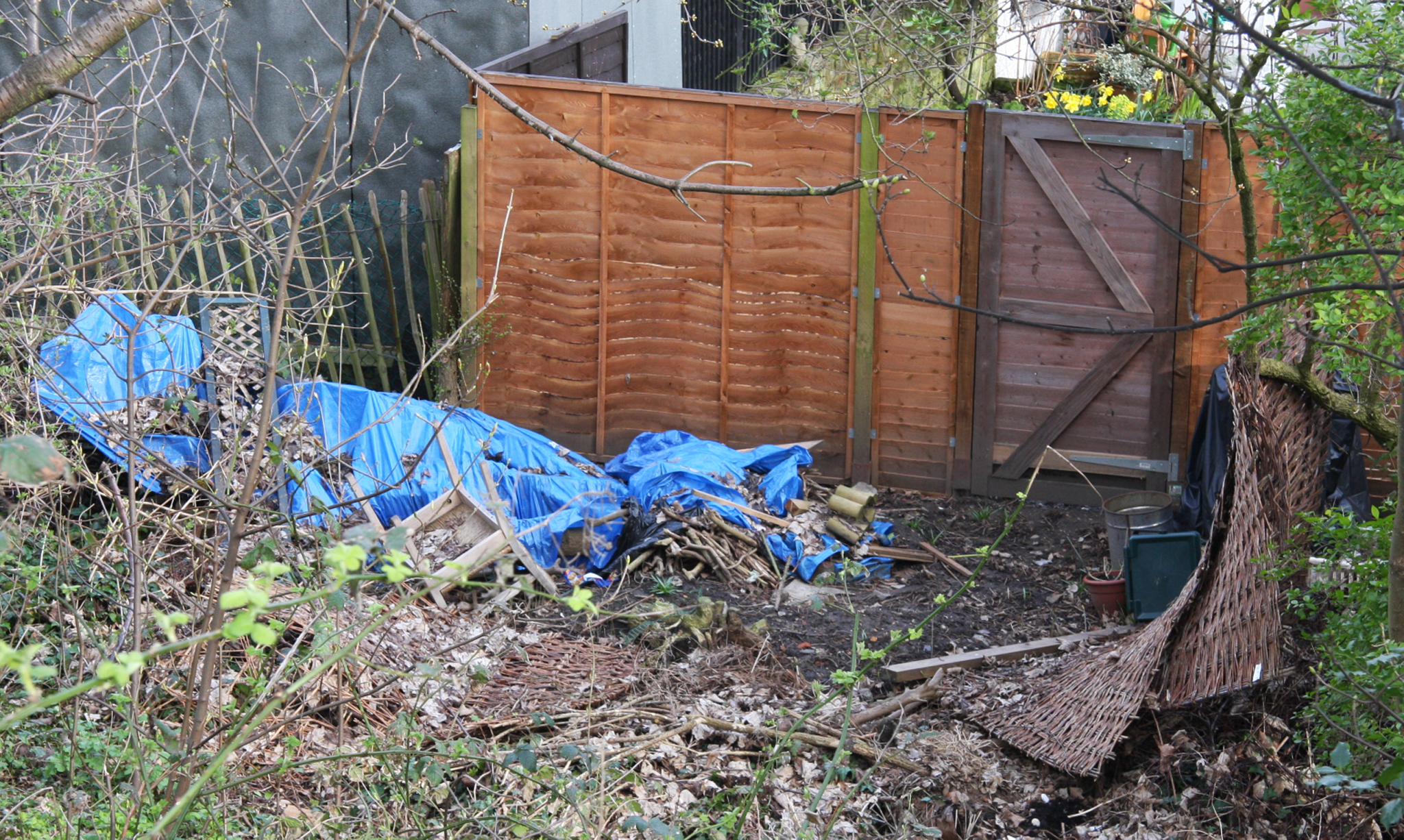It’s a sad fact but one of the biggest threats to the Walk is encroachment. This takes many forms from tipping of rubbish (including garden waste, household items and building rubble) to householders trying to extend their gardens into the Walk or building on the boundary, which can have a catastrophic effect on the ecology of the immediate area.
The FPW make a point of challenging any threat to the area of the Parkland Walk, which is after all designated as Metropolitan Open Land and therefore rightfully a resource for all of us. It should not be regarded by greedy opportunists as land to be plundered or spoiled. Haringey Council is engaged in commissioning surveys to ascertain the legality of boundary lines and will challenge them where they believe it is right to do so.

Encroachment by rubbish and garden waste
The nature reserve is regularly spoilt by the illegal disposal of rubbish ranging from discarded flower pots to fencing and builder’s rubble. There is little need to explain why this is unwanted. Another aspect of encroachment that surprises many is the disposal of garden waste. On the face of it, one might think that green material rotting down would be a benefit to the nature reserve. This isn’t actually the case. The nature reserve is home to wildflowers, which naturally thrive in poor soils. The addition of large amounts of green material changes the soil pH value, making it unsuitable for wildflowers and other beneficial native vegetation. And there is also a risk of introducing invasive non-native species. Residents who argue they are composting should remember that the purpose of compost is to produce nutrient rich material that should be dug back into garden plot. Even placing a compost bin in the nature reserve is harmful.

Access from garden gates
This is an increasing issue for the nature reserve as more and more residents create their own personal entrances to the Walk. Many believe they have a ‘right of access’ but this is not the case. When the councils acquired the land from the railways they also took on the provision of access to the land and created many entrances points. These are the legitimate access points. Any other access is actually trespass. But there is much more to this than a pure legal position.
The Parkland Walk, as well as being Metropolitan Open Land (MOL), is first and foremost a local nature reserve, and as such deserves certain protections. The creation of individual paths is having a serious effect on the integrity of the ecology.
Intrusion and disturbance by human presence has meant that we have lost a number of species over the last thirty years and this is in part down to the impact of human presence. Nationally, the UK is now bottom of all the G7 countries and third from bottom in Europe for figures on species decline. We all have a part to play in ensuring our natural spaces, especially our nature reserves, are in the best condition for nature to thrive. Arguably those who have the good fortune and privilege to live adjacent to the reserve have an even greater responsibility.
Although it may seem a convenience and a small thing, we would ask all residents living next to the nature reserve to use the same entrances that everyone else has to use so that nesting birds and small mammals can inhabit the ground without disturbance and that tree roots and more delicate vegetation are not damaged by compaction of the soil. It’s one small, but very important way, of contributing towards reversing species decline.
